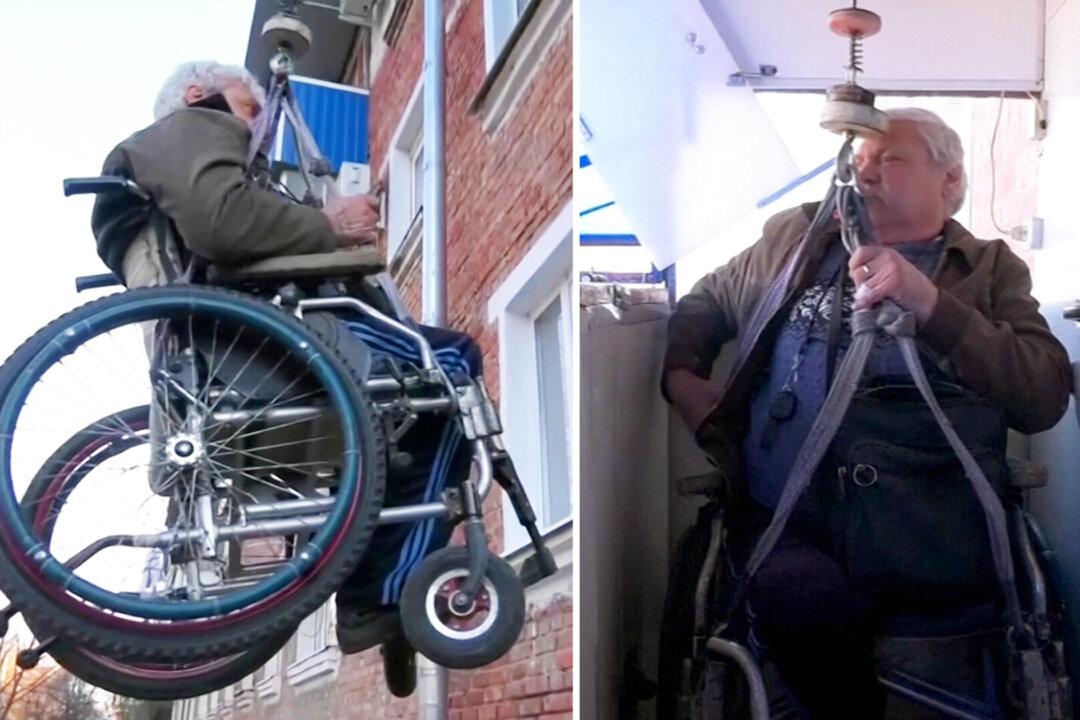Several decades ago, Alexander Yudin lost his leg in a car accident. Three years ago, he slipped using crutches on ice, leaving him with a complicated hip fracture which at 67-years-old meant he wouldn’t be able to walk for the rest of his life.
Leaving his apartment on the third floor of a block in Timashevsk, a small town in southern Russia, became impossible for Yudin, as his house does not have any facilities for low-mobility residents to move around. To exit the house, he needed at least one more person to help him, and his son had to spend the day at work.






